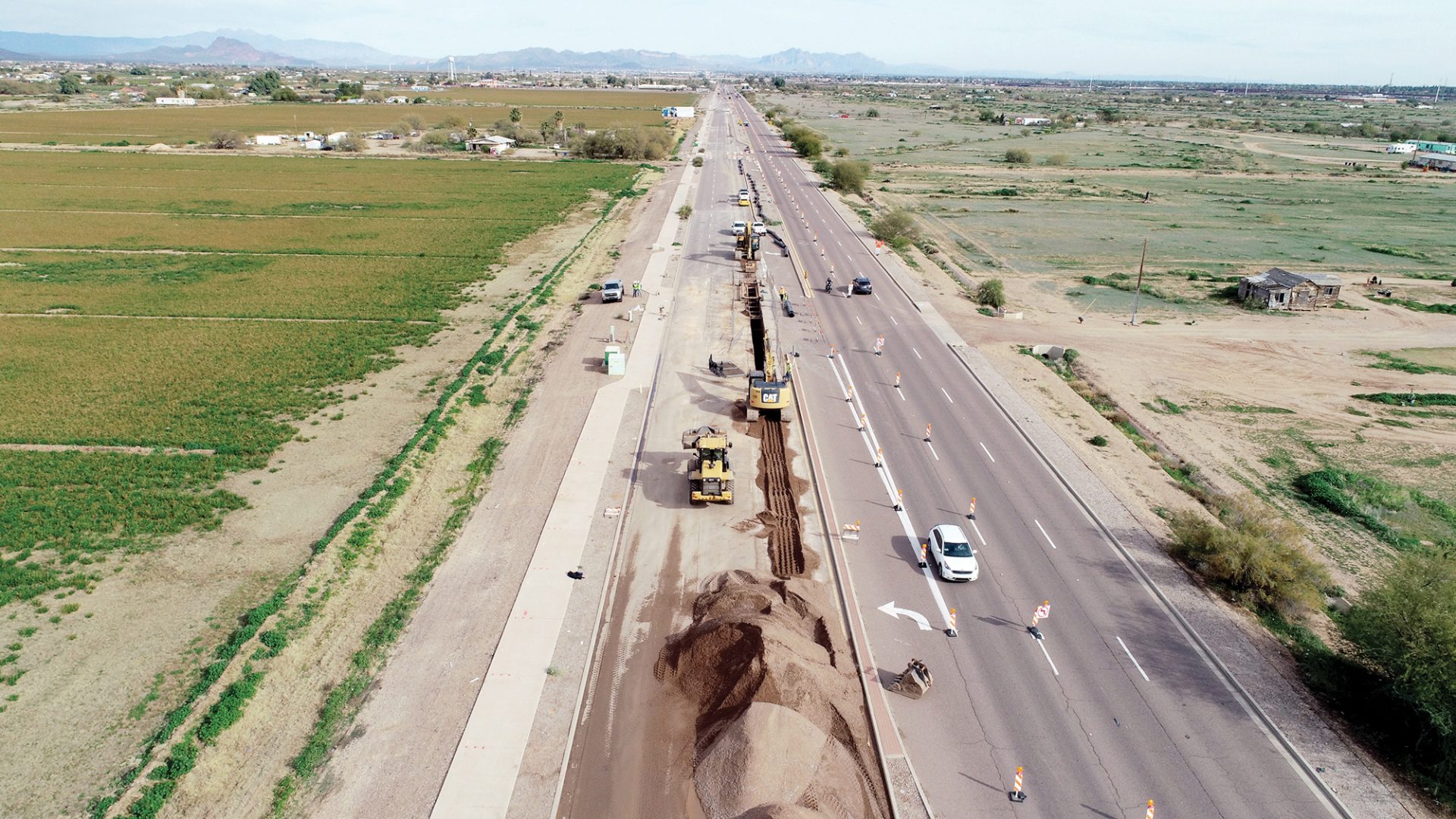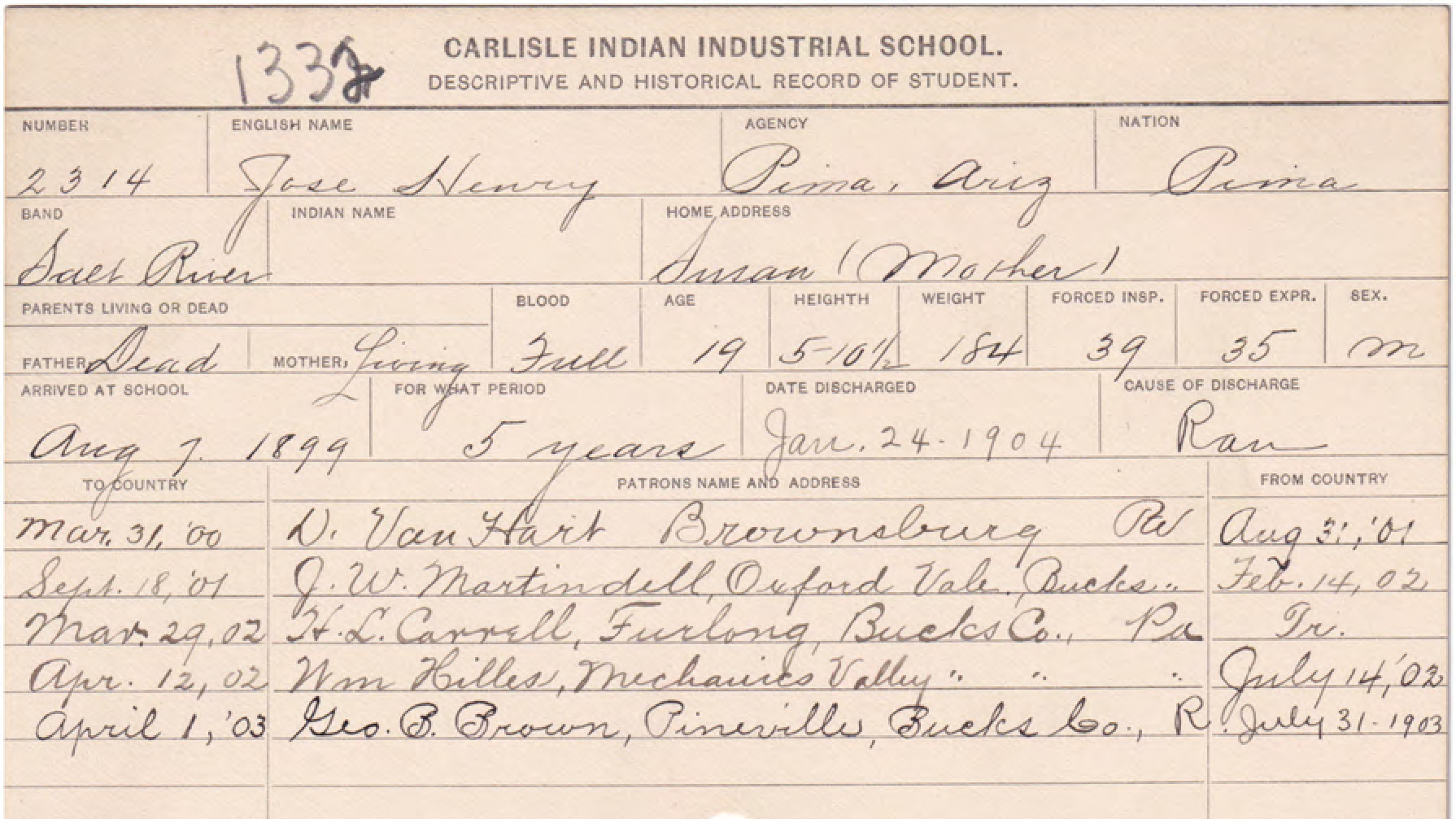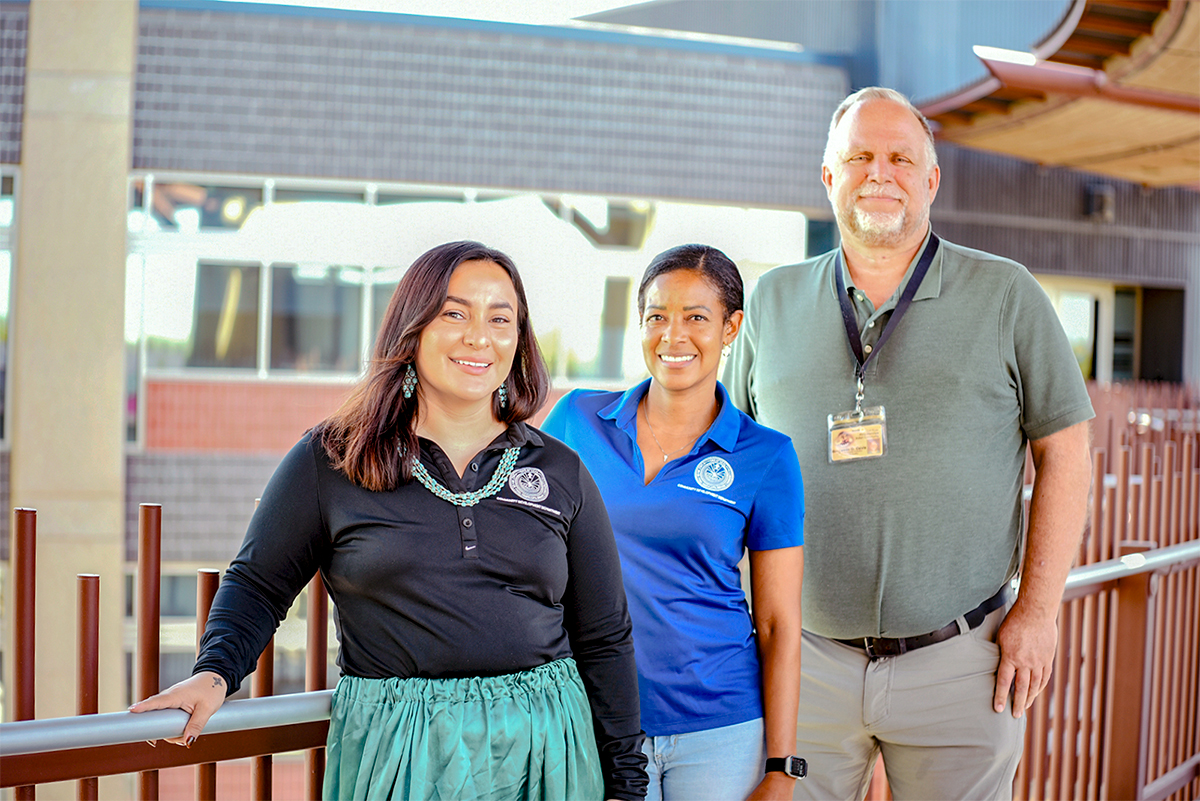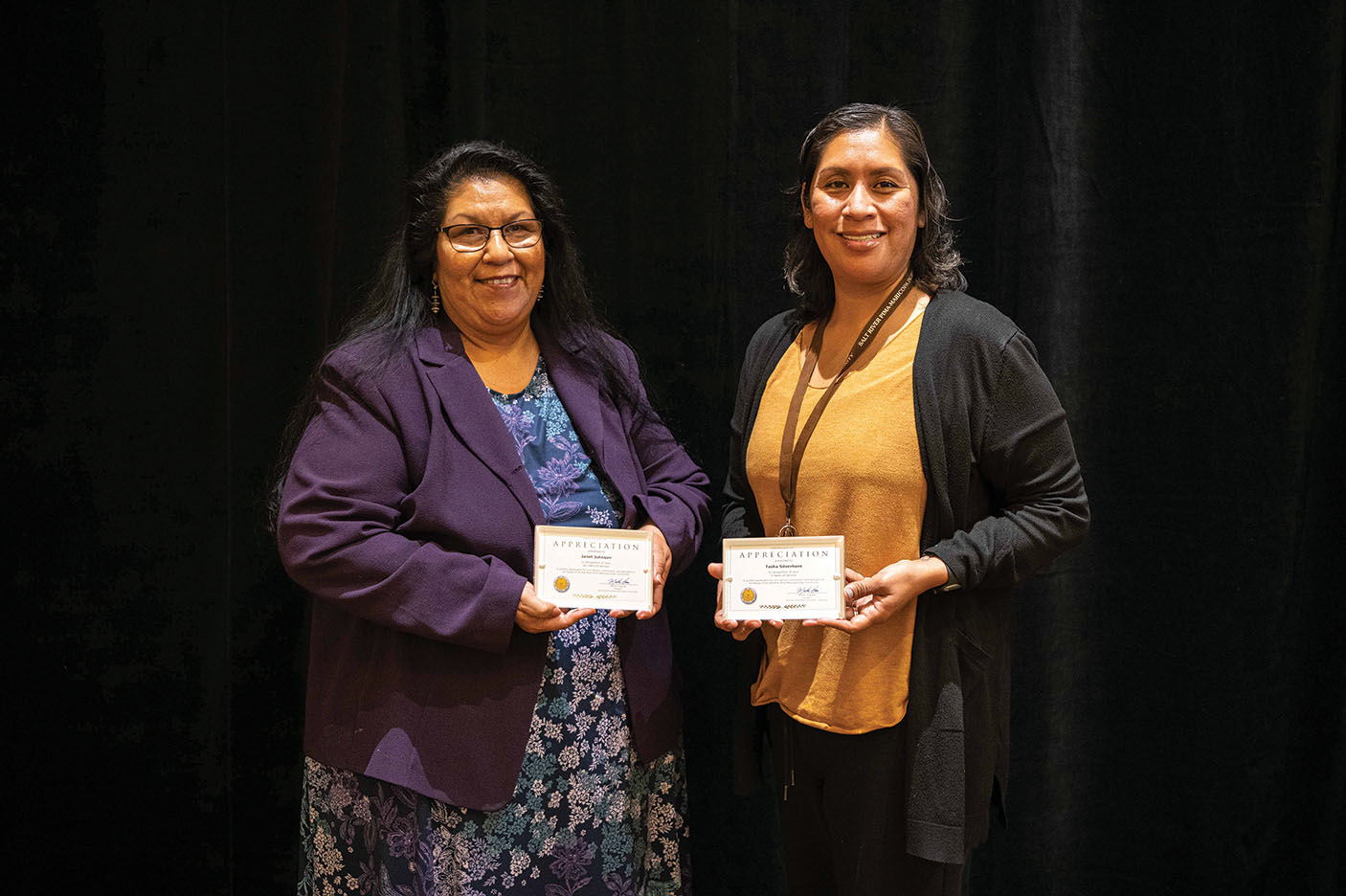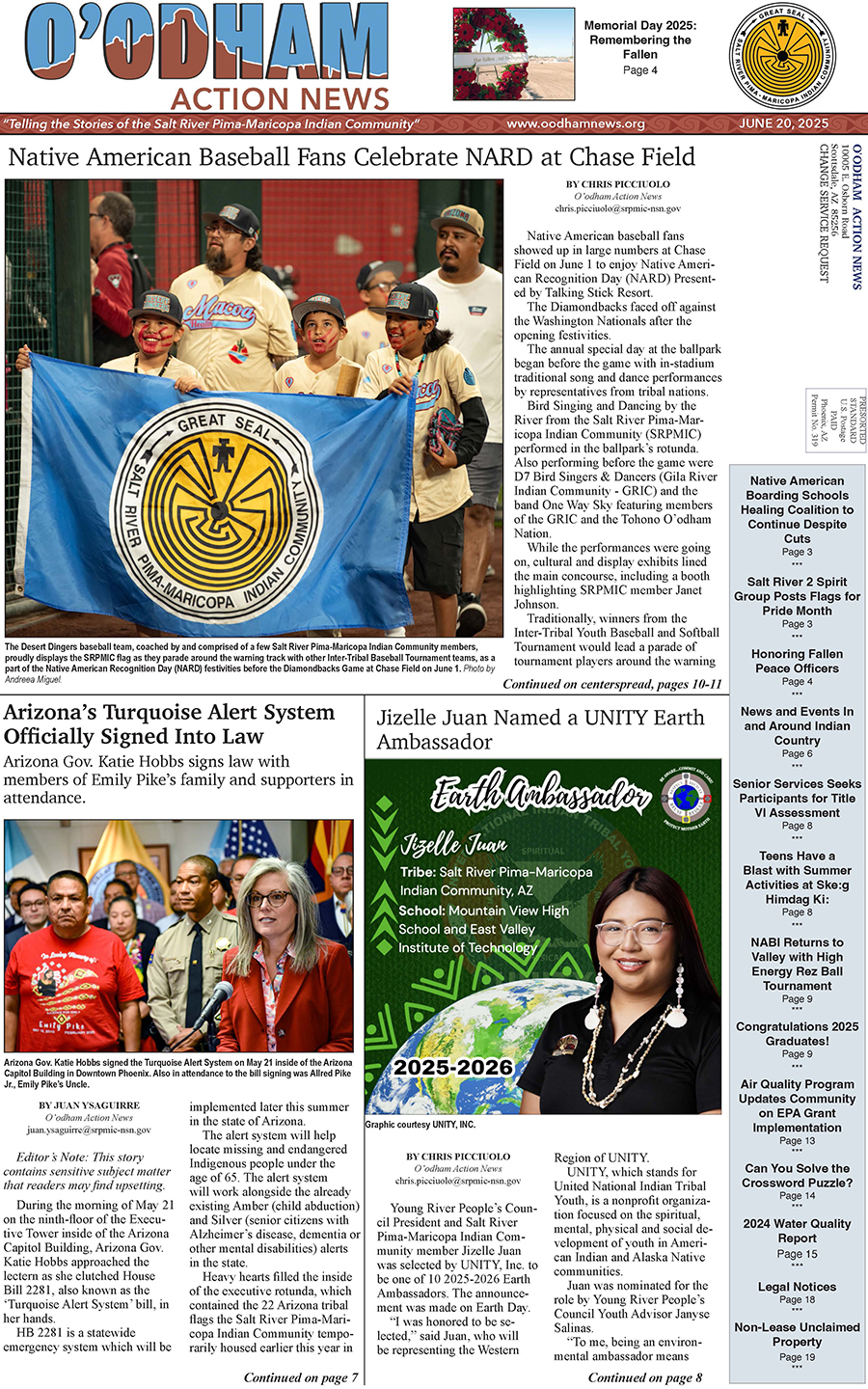VIEWS: 5489
September 30, 2020Salt River Public Works Department Continues Essential Services to SRPMIC During COVID-19 Pandemic
The Salt River Pima-Maricopa Indian Community’s Public Works Department is one of the major departments that keeps the Community going every day. It has more than 200 skilled and professional workers who provide a number of services to the SRPMIC members, employees, visitors and commercial enterprises. The department has four divisions: Administration; Community Services; Facilities and Utilities; and Roads. Those divisions are divided into further sections responsible for specific duties, such as Solid Waste, Memorial and Cemetery Services, and Transportation Planning.
Public Works Director Kirk Beaty provided an update on what the Public Works Department has been doing since COVID-19 has limited the services available to the Community and what they have planned for the future, when SRPMIC employees return to work.
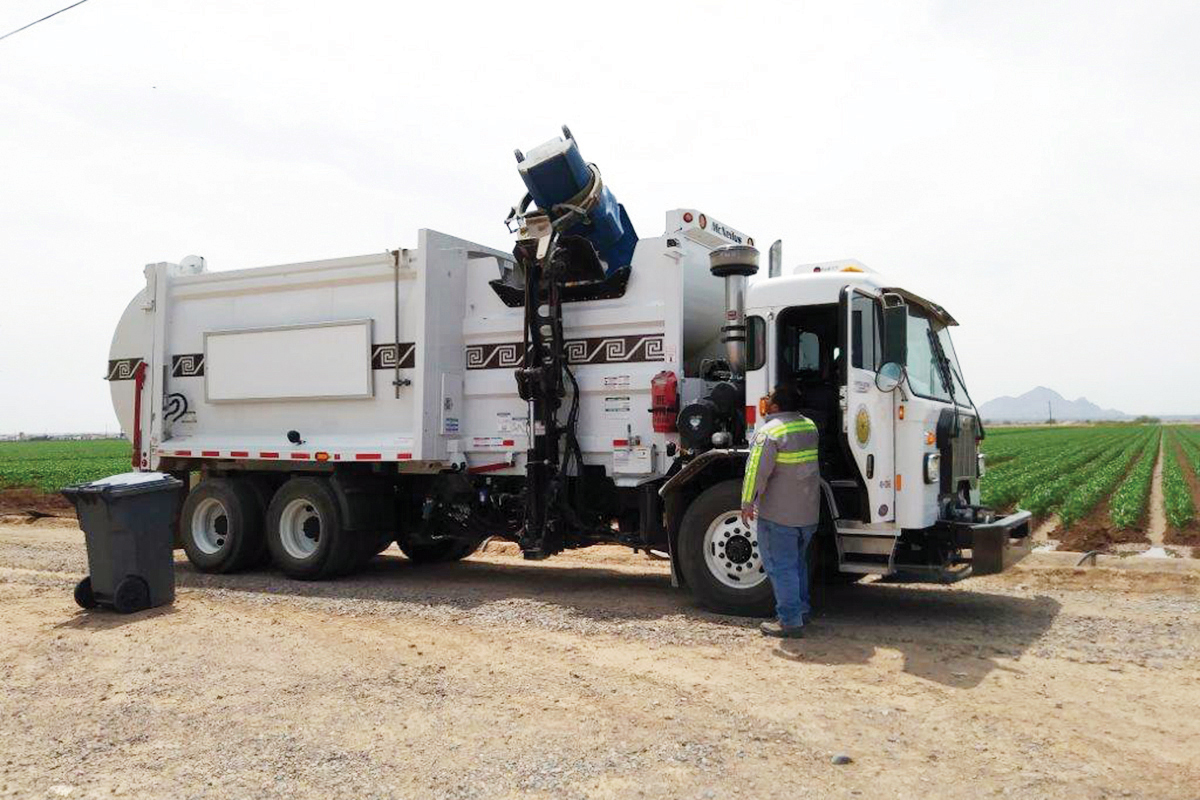
Since the COVID-19 pandemic began earlier this year, the Public Works Department has been focused on providing the basic, daily essential services to the Community. According to Beaty, these services include:
* Funeral and burial services
* Trash collection
* Providing clean water to the Community
* Collection of sewage by pumping septic tanks and maintaining the Community’s sewer system
* Maintaining roads
* Providing irrigation water to the farmers
* Custodial services for the Community government offices that are being utilized
* Basic building and grounds maintenance
Public Works also has played a role in big projects that have been in progress during the COVID-19 pandemic, the Northeast Ambulatory Care Center (NEACC) and the Pima Road Improvements, by working on the water and sewer line construction. Work was limited to essential staff only, to help reduce the spread of the virus among the workers.
“Early in the pandemic, Public Works assigned a staff member to the Emergency Operations Center to support the Community-wide response. Even since the Emergency Operations Center closed, the support has continued,” said Beaty. “Primary pandemic response efforts have included supporting Health and Human Services (HHS) as they test and treat Community members with COVID-19, development of building custodial and maintenance plans to ensure customer and employee safety when the government and schools reopen, and involvement with the emergency command team in overall planning of further response efforts.”
Public Works Divisions Working Hard
Many SRPMIC Public Works employees are working from home. These employees work in divisions such as the Memorial Hall, the Solid Waste section and the Facilities Maintenance Division.
The Memorial and Cemetery Services section has been very busy, unfortunately, due to the spike in the number of COVID-19 deaths in the Community during June, July and August. The Memorial and Cemetery Services team has had to adjust operations as a result of the Community’s Executive Order limiting gatherings to a certain size and allowing only graveside services.
“The team still helps the families of the deceased with mortuary and burial arrangements, but this work is primarily done over the phone or through video conferencing to avoid face-to-face meetings,” said Beaty.
The Solid Waste Section has continued collecting trash and recyclables throughout the Community. The department has seen an increase in the amount of residential trash collected due to people staying home from work and not attending school or going out.
“We experienced a reduction in commercial trash collection, which resulted in a drop in revenue, but the commercial business is starting to pick up as more and more businesses resume operations,” said Beaty. “Curbside bulk trash collection was suspended during the pandemic to keep the work crews from congregating and possibly spreading the virus. However, curbside bulk trash collection resumed on September 8.”
The Facilities Maintenance Division provides custodial services, building maintenance and repairs, and grounds maintenance to all government and school facilities.
“Although the government operations were reduced to only essential services and many employees are working from home or on standby, the building systems continue to operate and the plants and weeds continue to grow, so regular maintenance is still required,” said Beaty. “However, we reduced our routine maintenance operations to limit the amount of staff on site.”
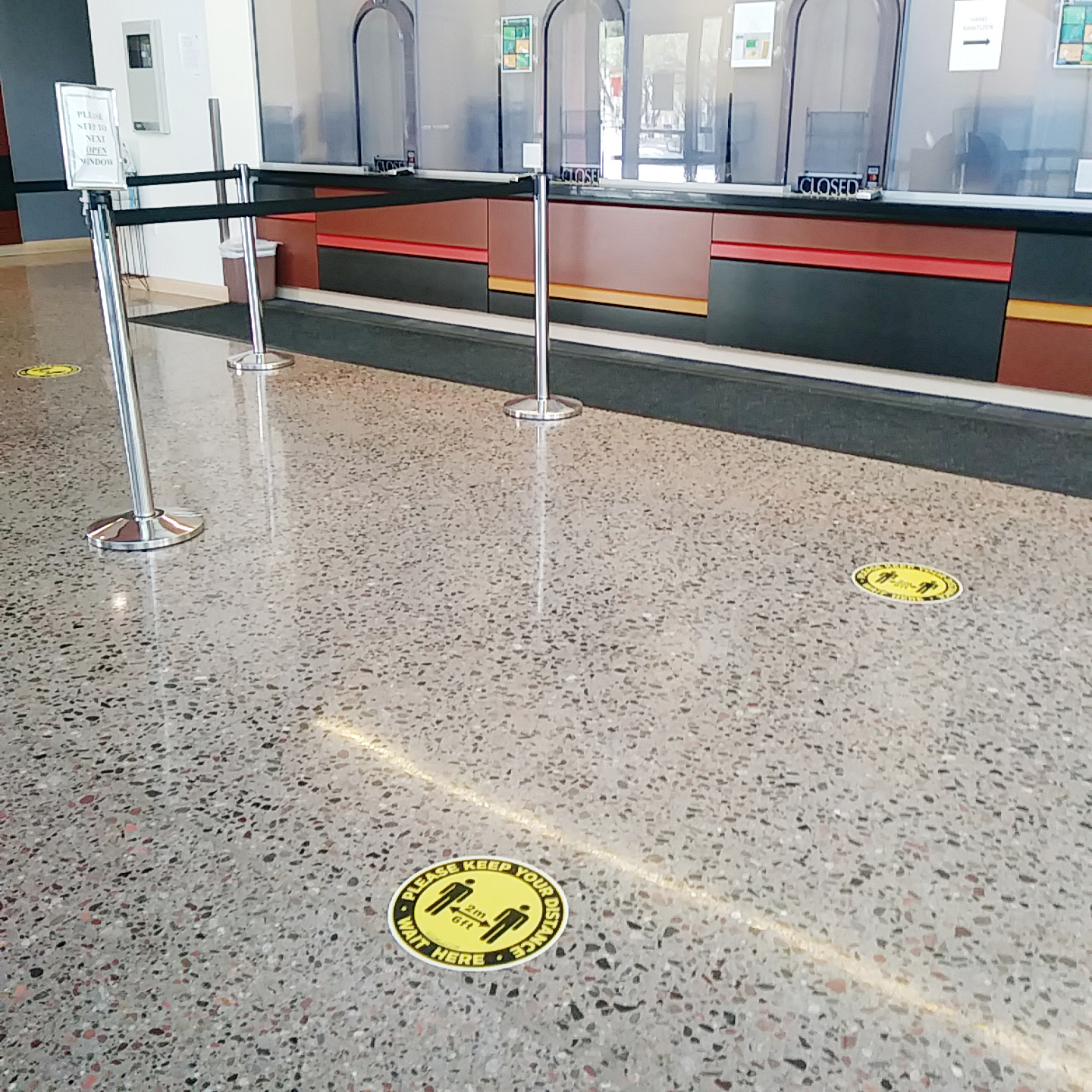
The Facility Maintenance staff has been at the forefront of Public Works’ efforts to support the Community’s COVID-19 response. Custodial staff have developed and implemented enhanced cleaning procedures. Building Maintenance teams have deployed acrylic shields (sneeze guards) in reception and meeting areas throughout government buildings. Signs have been installed throughout the buildings that remind staff and visitors of COVID-19 safety protocols and support the COVID-19 testing sites established by HHS. Building Maintenance has also ensured that air-conditioning systems remained operational and air filters were changed regularly. They also maintained the water piping and fixtures by flushing them regularly to prevent standing water in the pipes while buildings were closed.
Major Public Works Projects
Public Works has more than 100 Capital Improvement Projects (CIP) on the books; many have been put on hold due to the COVID-19 pandemic. Several of these projects have been managed by Engineering and Construction Services (ECS), but ultimately the Public Works Department will be responsible for the maintenance of these projects once completed.
The Northeast Ambulatory Care Center (NEACC) project includes the water and sewer line construction to provide adequate water and sewer service to the NEACC, as well as to support any possible future development along the route. The new water main was placed along McDowell Road from 92nd Street to Country Club, and a new sewer main runs along McKellips from 92nd Street to Dobson, north on Dobson to McDowell, and east on McDowell to Country Club. This $15 million project is funded through an Indian Health Service grant and supplemented with Community CIP funds. Also, existing homes along the sewer route will be connected to the new sewer line, and provisions are being made for future home connections, explained Beaty.
Improvements are being made to Pima Road, from McDowell north to the Community’s northern boundary. The work includes widening Pima Road to four lanes with a median, storm drains, intersection improvements and landscaping.
“This work is primarily funded through a $50 million federal grant, with additional funding provided by the SRPMIC, City of Scottsdale, Maricopa Association of Governments and other project partners,” said Beaty. “Design is currently underway and construction is anticipated to begin in the spring of 2022.”
With a $6 million grant, significant improvements are being made at the Early Childhood Education Center. Money will be used for playground renovations, classroom improvements and security enhancements at the entrance of the facility.
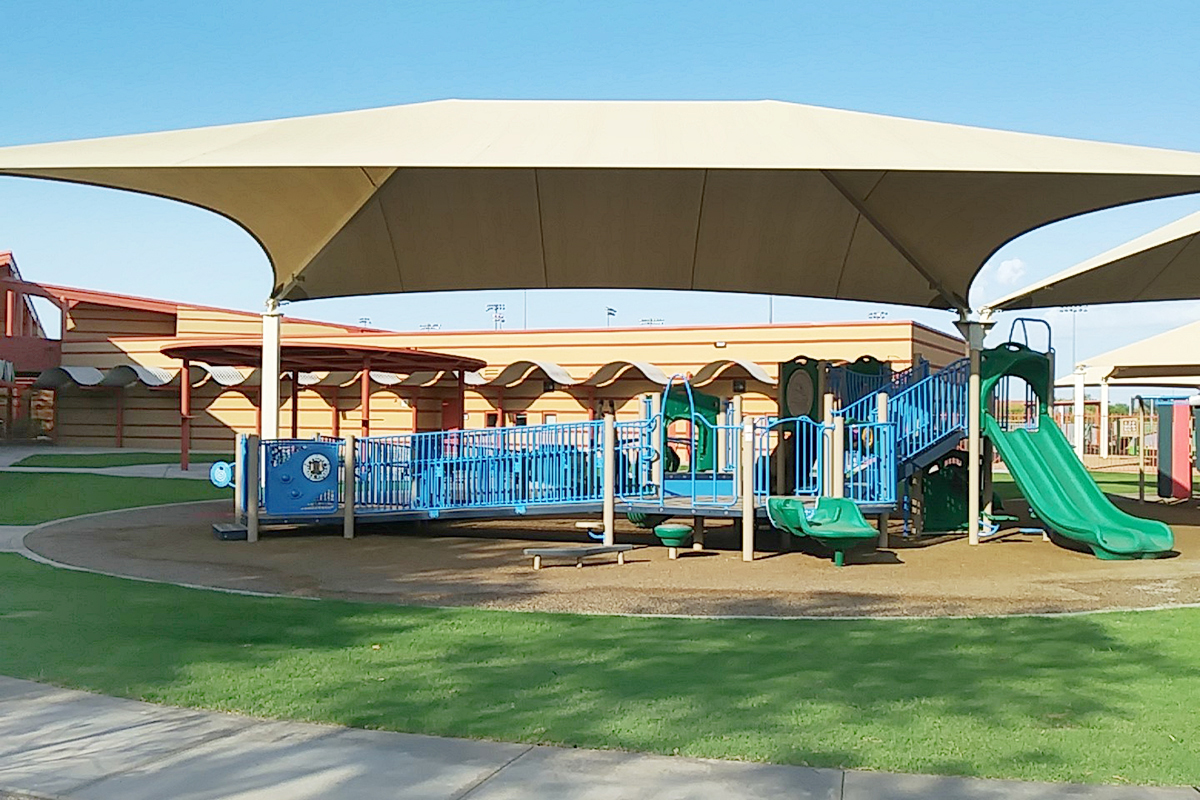
Other ongoing projects include master planning for improvements to the Salt River and Lehi cemeteries.
“Public Works has worked with the Community Development Department and landowners to resolve trespass issues at both cemeteries. Additionally, studies were conducted to determine the remaining amount of burial space at each cemetery, and a prediction of how much longer both cemeteries can be used,” said Beaty. “The Salt River Cemetery has a limited amount of time remaining, and work is in progress to obtain additional land and make improvements to maximize available space while also providing improved amenities like roads, restrooms and ramadas. The Lehi Cemetery has a much longer duration, but similar improvements are being planned. Public Works is negotiating with a consultant for design of the improvements, and there will be a number of Community-member meetings to gain input as this project progresses.”
Public Works’ Service to the Community
The Public Works Department staff continues to be committed to serving and meeting the needs of the Community.
“Our customers, which include the SRPMIC members, residents, employees, businesses and visitors, deserve and expect exceptional service,” said Beaty. “Our team is committed to providing these essential services and is also committed to helping the Community recover and prosper after the COVID-19 pandemic.”

